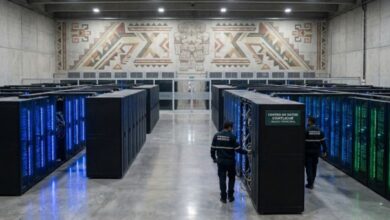Latin America must enter the race for 5G technology
Listen to this article
Not only is it a matter of houses being smart, but the 5G network would increase the region's competitiveness to improve living conditions

In recent months we have witnessed the trade war between China and the United States, of which a line of discussion has been the offer of telecommunication services of the giant Huawei. Beyond the American government's distrust of the possibility of the Chinese government acquiring information through the network infrastructure, this dispute is another two-point test. First, the importance of the use of technology for the State and, second, the technological career that translates into a race for the positioning and competitiveness of a country.
Leer en español: Latinoamérica debe entrar en la carrera por la tecnología 5G
One of the technological advances with greater weight in this race is the 5G network, the one that would finally make possible 'the Internet of things'. This means the possibility of connecting all objects to a Wi-fi network and, thus, increase the range of uses and personalization that it can offer. In its most mundane side, this means coffee makers and refrigerators that adapt to your schedules, televisions that recommend shows and, in general, a home that suits all your preferences. This is possible due to the increase in latency speed, which means more speed in navigation, that is, easier and faster data transmission.
You may be interested: No more politicized media!
However, this use is only a tiny part of what this new technology can offer. Moreover, this technology can determine the ability to develop programs in all types of fields that would increase the competitiveness of the region globally. Therefore, both research and the implementation of 5G technology should be a priority for Latin American governments.
It is enough to mention a few examples, particularly in relation to the remote management that would be possible, and that are related to the so-called 'Internet of skills'. In medicine, the possibility of remote operations would exist, since very high-quality video could be transmitted in special glasses that the doctor uses. Likewise, gloves with an immediate sensory experience would make the doctor feel in his hands the interaction with the body so real that the detail in each movement could be optimal. Imagine, taking into account the great distances that separate certain regions of urban centers (such as the Amazon), that a person can be treated at the local health center by a more qualified professional in the city.
In terms of transportation, there would be the possibility of operating heavy machinery from a distance. This would not only imply the ability to work in high-risk regions in the construction of roads or any type of structure, but also the possibility of intervening in landslides and other types of disasters with more speed and less risk.
Finally, the educational coverage would increase its amplitude, since students, both university and collegiate, could access videos and heavy files quickly, which translates into more interactive and complex courses at the interface level. Thus, education would be decentralized and it would be possible to obtain it outside cities with comparable quality levels.
Greater access to education, better medical coverage and an increase in construction productivity, all these are elements that make a country more competitive in the market. If Latin America invests in this technological advance, both its global influence and the quality of life of its inhabitants could improve.
LatinAmerican Post | Editorial Team
Translated from "Latinoamérica debe entrar en la carrera por la tecnología 5g"





